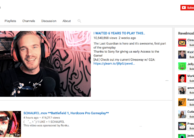Ronald Reagan’s “Viewpoint Commentary” drafts show that he liked reinforcing key themes in his mind. As history shows, he used themes when referring to his past speeches and when preparing for future ones. A draft from August 1978 reads: “John Winthrop on the deck of the tiny Arbella in 1630 off the coast of Massachusetts said to the little band of pilgrims: “We shall be as a city upon a hill. The eyes of all people are upon us, so that if we shall deal falsely with our God in this work we have undertaken & so cause him to withdraw his present help from us, we shall be made a story & a byword throughout this world” (Skinner, 14). The historical narrative of Winthrop’s “City Upon a Hill” was commonly told by Reagan to evoke Patriotism. In general, regardless of the specific point he tried to make, he alluded to Winthrop to show the remarkable progress that America had made since the early-17th century.
The August 1978 draft echoed Reagan’s January 1974 speech at the First Conservative Political Action Conference. Appropriately titled "We Will Be A City Upon A Hill,” the speech capitalized on the overwhelming feeling that God had been excluded from the classroom. Directly after telling the story of John Winthrop, he cleverly added: “Well, we have not dealt falsely with our God, even if He is temporarily suspended from the classroom” (Reagan, 1974).
Here, Reagan traced America’s religious progress to a source of pride that all began with Winthrop. He could thus “shock” his fellow Conservatives to show what America had evolved into nearly 350 years later: A country that excluded God from academia. As history proves, this narrative was effective because he used it in his later speeches as President. The narrative appears in his Election Eve address from November 1980, his announcement of campaigning for a second term in August 1984 and his last televised Presidential address in January 1989 (Reagan, 1980).
Ronald Reagan concluded his “Viewpoint Commentary” broadcasts in October 1979, announcing that he was again running for the Republican Presidential nomination. This time, he did not have to run against an incumbent Republican, since President Carter was a Democrat. Moreover, the “Viewpoint Commentaries” helped to bolster his popularity even more. The 1980 Presidential Campaign was certainly a busy year for Reagan. However, he would soon discover that his efforts were well worth it. On November 4, 1980, Ronald Reagan was elected as the 40th President of the United States.
On January 20, 1981, the world watched Ronald Reagan’s inauguration as he took the oath of office. Not long after, he realized that he would have to make a drastic change to his speech-writing process. He recalled: “Until I got to the White House, I wrote all of my own speeches. But Presidents make so many public appearances and have so many other demands on their schedule that I soon learned there wasn't enough time to write every speech and I would need help from the White House staff. Because I’d always taken pride in my speeches, this didn't sit well with me, but I didn't have much choice” (Reagan, 246).
Unlike his predecessors, Reagan wanted more control over his public addresses. Thus, he compromised with his speech writers He remembered: “…I told them some of my rules for speaking: I prefer short sentences, don't use a word with two syllables if a one syllable word will do; and if you can, use an example. An example is better than a sermon” (Reagan, 246). Reagan’s recollection reveals that this strategy allowed him to free up time while still retaining some control over of his speeches. When listening to his “Viewpoint Commentaries,” there are no un-necessary words. Each word served as a piece of a rhetorical puzzle that was not difficult to solve.
Since Reagan’s scripted rhetoric was easy to understand, it was not surprising that he was not as skilled in more confrontational speaking situations. While his Presidential debates of 1980 and 1984 were somewhat weak, his most public gaffes arguably came from his press conferences. In a June 1981 press conference, he offered rambling answers to fairly-straight-forward press questions, revealed inattention to current events. When asked about Israel’s refusal to sign the Nuclear Non-Proliferation Treaty, he replied: “Well, I haven’t given very much thought to that particular question there, the subject about them not signing the treaty, or, on the other hand, how many countries do we know that have signed it that very possibly are going ahead with nuclear weapons. It's, again, something that doesn’t lend itself to verification” (Cannon, 157). Visibly, Reagan’s performance was poor when he was obliged to answer press questions. This is hardly surprising because prepared speeches were his comfort zone.
Some camps excuse Reagan’ clumsy press conference performances by pointing out that he was the oldest President (Auer, 106). The modern Presidential press conferences encompass the-first oldest (Reagan), fourth-oldest (Bush Sr.) and sixth-oldest (Eisenhower) Presidents at their inaugurations. The Presidents in the middle of those numbers pre-dated the modern Presidential conference. With these three modern Presidents in mind, the total numbers of press conferences that each gave can be compared. From 1981-1988, Reagan gave 46 Presidential press conferences (American Presidency Project, 2011). George Bush Sr., Reagan’s Presidential successor, gave 137 Presidential press conferences during his 1989-1993 term (American Presidency Project, 2011). Remarkably, Bush Sr. gave just short of three times as many press conferences than Reagan during only one term. Eisenhower, like Reagan, was a two-term President. However, from 1953-1961, Eisenhower gave 192 Presidential press conferences (American Presidency Project, 2011). Certainly, it can be surmised that Reagan’s age probably did not impair his ability to competently answer press questions.
Ronald Reagan’s first term truly stretched his rhetorical abilities. Reagan, used to entertaining audiences on non-confrontational mediums such as television and radio, was now being second guessed on his speaking talents. The press had a field day, slowly eroding his speaking reputation. Sensing an impending disaster, White House Communications Director Michael Deaver arranged a series of nine Saturday radio addresses, slated to begin in April 1982. When approached to go on the radio, Reagan was more than happy to oblige Needless to say, popular demand extended his radio talks for the remainder of his Presidency.
Before going on the air, Reagan knew he would be reaching out to a much wider audience than his previous rhetorical roles. Remembering the moment vividly, Reagan recalled his goal when he wanted “To bring the facts to the people as succinctly as I can cram in five minutes” (Locander, 248). Since he felt that the press was mis-interpreting his policies, he wanted to go on rumor control for his constituents. Nearly four decades after Roosevelt’ final Fireside Chat, radio was still ideal for mass communication. On the White House’s end, it was easy to set up a makeshift radio station wherever the President traveled. Likewise, the public could tune-in just about anywhere they had access to a radio. Not only were personal radios widely available, but most working adults had access to the radio in their cars. Compared to the cumbersome radio designs of Roosevelt’s time, the radio truly reached out to everyone.
Within weeks of making his first address in April 1982, Reagan made the first direct reference to rumor control. He announced: “It's just possible that you may have heard or read that there's some talk in Washington about a budget. If so, you've also heard a few things that aren't true” (Reagan, 1982). A common rhetorical technique that Reagan liked to use in almost every radio address was to inform his audience of the address’s topic. Since he wanted to set the record straight on his policies, he had to ensure that people could follow along. If a speaker fails to capture their audience’s attention during the beginning of their speech, the rest of the speech could be compromised by audience disinterest. With his topic declared, Reagan’s next step was to move deeper.Continued on Next Page »
Abbott, P. (1997). Leadership by Exemplar: Reagan’s FDR and Thatcher’s Churchill. Presidential Studies Quarterly 27 (2) ,186-206.
Address to the nation on the explosion of the space shuttle challenger: January 28, 1986. In (1993). D. Houck & A. Kiewe (Eds.),Actor, Ideologue, Politician: The Public Speeches of Ronald Reagan(pp. 280-281). Westport, CT: Greenwood Press.
The American Presidency Project. (2011). Presidential News Conferences Hoover - Obama. Retrieved from http://www.presidency.ucsb.edu/news_conferences.php?year=1981&Submit=DISPLAY
Auer, J. J. (1992). Acting like a president; or, what has Ronald Reagan done to political speaking? In M. Weiler & W. Pearce (Eds.),Reagan and Public Discourse in AmericaTuscaloosa, AL: The University of Alabama Press.
Blankenship, J. and Muir, J.K. The Transformation of Actor to Scene: Some Strategic Grounds of the Reagan Legacy. In M. Weiler & W. Pearce (Eds.),Reagan and Public Discourse in AmericaTuscaloosa, AL: The University of Alabama Press.
Bostdorff, D.M. and Goldzwig, S.R. (2005). History, Collective Memory, and the Appropriation of Martin Luther King, Jr.: Reagan’s Rhetorical Legacy. Presidential Studies Quarterly 35 (4), 661-690.
Bush, G.H.W. (1990). Radio Address to the People of Czechoslovakia November 17, 1990. Retrieved from http://www.presidency.ucsb.edu/ws/index.php?pid=19068#ixzz1GMDk17o2.
Cannon, L. (1991). President Reagan: The role of a lifetime. New York: Simon & Schuster.
Edoardo, A.M., Fienberg S.E. and Skinner, K.K. (2007). Whose Ideas? Whose Words? Authorship of Ronald Reagan's Radio Addresses. PS: Political Science and Politics 40 (3), 501-506.
Erickson, P.D. (1985) Reagan Speaks: The Making of an American Myth. New York: New York University Press.
Internet Movie Database. (2011). Ronald Reagan (I) (1911–2004). Retrieved from http://www.imdb.com/name/nm0001654/#Actor.
Lim, E.T. (2002). Five Trends in Presidential Rhetoric: An Analysis of Rhetoric from George Washington to Bill Clinton. Presidential Studies Quarterly 32 (2), 328-366.
Locander, R. (1983). Modern Presidential In-Office Communications: The National, Direct, Local and Latent Strategies. Presidential Studies Quarterly 13 (2), 242-254.
NOAA. (2010). Mid Atlantic Winters: Snow, Wind, Ice and Cold. Retrieved from http://www.erh.noaa.gov/lwx/winter/DC-Winters.htm.
Reagan, R. (1982). Christmas Day Radio Address to the Nation December 25, 1982. Retrieved from http://www.presidency.ucsb.edu/ws/index.php?pid=42147#axzz1G3X83RAa.
Reagan, R. (1980). Election Eve Address "A Vision for America" November 3, 1980. Retrieved from http://www.presidency.ucsb.edu/ws/index.php?pid=85199.
Reagan, R. (1989). Farewell Address (January 11, 1989) Ronald Wilson Reagan. Retrieved from http://millercenter.org/scripps/archive/speeches/detail/3418.
Reagan, R. (1984). Radio Address to the Nation on Administration Policies August 25, 1984. Retrieved from http://www.presidency.ucsb.edu/ws/index.php?pid=40297#ixzz1GDoDNcNB.
Reagan, R. (1982). Radio Address to the Nation on Agriculture and Grain Exports October 15, 1982. Retrieved from http://www.presidency.ucsb.edu/ws/index.php?pid=41871.
Reagan, R. (1983). Radio Address to the Nation on the American Family December 3, 1983. Retrieved from http://www.presidency.ucsb.edu/ws/index.php?pid=40829#ixzz1G8xkRMWx
Reagan, R. (1985). Radio Address to the Nation on the American National Red Cross November 16, 1985. Retrieved from http://www.presidency.ucsb.edu/ws/index.php?pid=38084#axzz1G3X83RAa.
Reagan, R. (1983). Radio Address to the Nation on the Anniversary of the Birth of Martin Luther King, Jr. January 15, 1983. Retrieved from http://www.presidency.ucsb.edu/ws/index.php?pid=41387#axzz1G3X83RAa.
Reagan, R. (1982). Radio Address to the Nation on Armed Forces Day May 15, 1982. Retrieved from http://www.presidency.ucsb.edu/ws/index.php?pid=42525.
Reagan, R. (1988). Radio Address to the Nation on Armed Forces Day May 21, 1988. Retrieved from http://www.presidency.ucsb.edu/ws/index.php?pid=35862#ixzz1GM8QdQEM.
Reagan, R. (1987). Radio Address to the Nation on Budget Reform June 20, 1987. Retrieved from http://www.presidency.ucsb.edu/ws/index.php?pid=34457#ixzz1GL7gbloV.
Reagan, R. (1982). Radio Address to the Nation on the Caribbean Basin Initiative and Student Loans April 10, 1982. Retrieved from http://www.presidency.ucsb.edu/ws/index.php?pid=42382.
Reagan, R. (1985). Radio Address to the Nation on Civil Rights June 15, 1985. Retrieved from http://www.presidency.ucsb.edu/ws/index.php?pid=38782#ixzz1GE4jroep
Reagan, R. (1982). Radio Address to the Nation on the Congressional Agenda and the Economy November 6, 1982. Retrieved from http://www.presidency.ucsb.edu/ws/index.php?pid=41959.
Reagan, R. (1983). Radio Address to the Nation on Defense Spending February 19, 1983. Retrieved from http://www.presidency.ucsb.edu/ws/index.php?pid=40950#axzz1G3X83RAa.
Reagan, R. (1987). Radio Address to the Nation on Deficit Reduction March 28, 1987. Retrieved from http://www.presidency.ucsb.edu/ws/index.php?pid=34034#ixzz1GL5oj2gr.
Reagan, R. (1984). Radio Address to the Nation on Deficit Reduction and Taxation August 4, 1984. Retrieved from http://www.presidency.ucsb.edu/ws/index.php?pid=40233#ixzz1GALKs4i0.
Reagan, R. (1983). Radio Address to the Nation on Domestic Social Issues January 22, 1983. Retrieved from http://www.presidency.ucsb.edu/ws/index.php?pid=41643
Reagan, R. (1984). Radio Address to the Nation on Drug Abuse October 6, 1984. Retrieved from http://www.presidency.ucsb.edu/ws/index.php?pid=39198#ixzz1GDr2NfTc.
Reagan, R. (1982). Radio Address to the Nation on Economic and Budget Issues October 23, 1982. Retrieved from http://www.presidency.ucsb.edu/ws/index.php?pid=41908.
Reagan, R. (1985). Radio Address to the Nation on Economic Growth February 9, 1985. Retrieved from http://www.presidency.ucsb.edu/ws/index.php?pid=38202#ixzz1GE29aNin.
Reagan, R. (1985). Radio Address to the Nation on Economic Growth January 26, 1985. Retrieved from http://www.presidency.ucsb.edu/ws/index.php?pid=38899#ixzz1GE1KcL00.
Reagan, R. (1985). Radio Address to the Nation on Economic Growth and Minorities July 27, 1985. Retrieved from http://www.presidency.ucsb.edu/ws/index.php?pid=38939.
Reagan, R. (1985). Radio Address to the Nation on Economic Growth and Tax Reform August 3, 1985. Retrieved from http://www.presidency.ucsb.edu/ws/index.php?pid=38971#ixzz1GE6MPr5K.
Reagan, R. (1983). Radio Address to the Nation on the Economic Recovery Program February 5, 1983. Retrieved from http://www.presidency.ucsb.edu/ws/index.php?pid=40817#axzz1G3X83RAa.
Reagan, R. (1984). Radio Address to the Nation on the Economic Recovery Program January 21, 1984. Retrieved from http://www.presidency.ucsb.edu/ws/index.php?pid=41643.
Reagan, R. (1984). Radio Address to the Nation on the Economic Recovery Program and on Tax Reductions April 21, 1984. Retrieved from http://www.presidency.ucsb.edu/ws/index.php?pid=39711#ixzz1G93EJ0kg.
Reagan, R. (1982). Radio Address to the Nation on the Economy August 28, 1982. Retrieved from http://www.presidency.ucsb.edu/ws/index.php?pid=42900.
Reagan, R. (1984). Radio Address to the Nation on the Economy June 23, 1984. Retrieved from http://www.presidency.ucsb.edu/ws/index.php?pid=40090#axzz1G3X83RAa.
Reagan, R. (1982). Radio Address to the Nation on the Economy October 16, 1982. Retrieved from http://www.presidency.ucsb.edu/ws/index.php?pid=41876.
Reagan, R. (1988). Radio Address to the Nation on the Economy October 22, 1988. Retrieved from http://www.presidency.ucsb.edu/ws/index.php?pid=35051#ixzz1GMBG5JvW.
Reagan, R. (1984). Radio Address to the Nation on the Economy and on National Defense May 26, 1984. Retrieved from http://www.presidency.ucsb.edu/ws/index.php?pid=39974#ixzz1G96PAoTa.
Reagan, R. (1983). Radio Address to the Nation on Education April 30, 1983. Retrieved from http://www.presidency.ucsb.edu/ws/index.php?pid=41259#ixzz1G8KD899C.
Reagan, R. (1984). Radio Address to the Nation on Education September 8, 1984. Retrieved from http://www.presidency.ucsb.edu/ws/index.php?pid=40345#ixzz1GDpbvMEF.
Reagan, R. (1983). Radio Address to the Nation on Employment Programs March 5, 1983. Retrieved from http://www.presidency.ucsb.edu/ws/index.php?pid=41003.
Reagan, R. (1986). Radio Address to the Nation on the Federal Budget February 1, 1986. Retrieved from http://www.presidency.ucsb.edu/ws/index.php?pid=36446#ixzz1GEmiEdXi.
Reagan, R. (1982). Radio Address to the Nation on Federal Budget Legislation and Unemployment Figures May 8, 1982. Retrieved from http://www.presidency.ucsb.edu/ws/index.php?pid=42499.
Reagan, R. (1982). Radio Address to the Nation on the Federal Budget and the Western Alliance May 29, 1982. Retrieved from http://www.presidency.ucsb.edu/ws/index.php?pid=42584.
Reagan, R. (1983). Ronald Reagan: Radio Address to the Nation on Federal Income Taxes April 9, 1983. Retrieved from http://www.presidency.ucsb.edu/ws/index.php?pid=41164#ixzz1G7z4xRCa.
Reagan, R. (1983). Radio Address to the Nation on the Federal Reserve Board Chairman, the Seventh Space Shuttle Flight, and Science Education June 18, 1983. Retrieved from http://www.presidency.ucsb.edu/ws/index.php?pid=41495#ixzz1G8M9SDKr.
Reagan, R. (1983). Radio Address to the Nation on the First Session of the 98th Congress November 19, 1983. Retrieved from http://www.presidency.ucsb.edu/ws/index.php?pid=40795#ixzz1G8ww0rCZ.
Reagan, R. (1983). Radio Address to the Nation on the Fiscal Year 1984 Budget February 12, 1983. Retrieved from http://www.presidency.ucsb.edu/ws/index.php?pid=40925#axzz1G3X83RAa.
Reagan, R. (1983). Radio Address to the Nation on the Fiscal Year 1984 Budget February 12, 1983. Retrieved from http://www.presidency.ucsb.edu/ws/index.php?pid=40925#axzz1G3X83RAa.
Reagan, R. (1983). Radio Address to the Nation on the Fiscal Year 1984 Budget January 29, 1983. Retrieved from http://www.presidency.ucsb.edu/ws/index.php?pid=40517#axzz1G3X83RAa.
Reagan, R. (1987). Radio Address to the Nation on the Fiscal Year 1988 Budget January 10, 1987. Retrieved from http://www.presidency.ucsb.edu/ws/index.php?pid=33875#ixzz1GL2Ywd3R.















